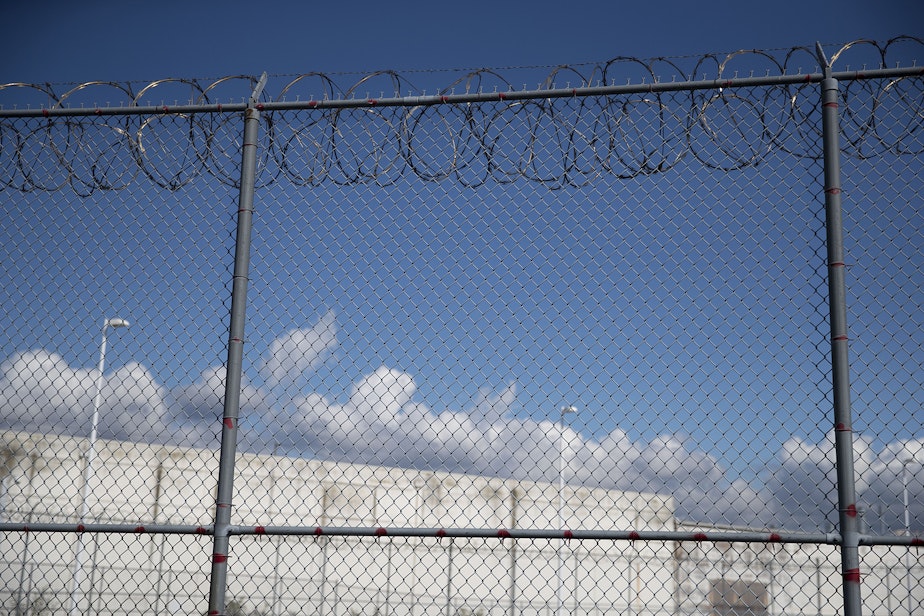Jury rules GEO Group must pay detainees minimum wage, not $1 per day

Detainees at the GEO Group's immigration detention center in Tacoma must now earn minimum wage, instead of a dollar a day. That was the ruling from a federal jury this week, which decided that the private company is underpaying for cooking and cleaning at its Northwest ICE Processing Center.
Next, the jury will consider how much former detainees are owed. To learn about the impact of this ruling, KUOW’s Paige Browning spoke with Matt Adams, legal director of the Northwest Immigrant Rights Project. He says there will finally be accountability for the way thousands of people were treated while living in detention.
This interview has been edited for clarity.
Matt Adams: I think this case vividly illustrates the problems that you have when you have a private corporation running this detention center, which is for all purposes a prison. It creates this perverse incentive to cut costs and make a larger profit. That's what you had here. You had individuals who are being imposed on, forced to work for a dollar a day, and I say forced to work. It's true that it was “voluntary,” but when you're locked up for weeks and months at a time it's like that's your only outlet. You don't really have much of an option.
Paige Browning: If they begin making the Washington state minimum wage, $13.69 an hour, what kind of an impact could that have on their situation in the Tacoma facility?
One, it gives them money with which they can make phone calls to their family members. They're charged inordinate amounts just to call their families. Also, to supplement a very meager diet that they're provided. It would help provide them with resources for basic necessities. The other side of it is whether that will then result in more jobs in the local community, because they'll no longer be able to take advantage of this, basically, free labor.
Sponsored
One seemingly major development is that detainees who previously worked at the facility will be given back pay. What's your sense of how this will work?
There's still a lot to be developed here. The court is moving forward through this process. But yes, if this company, which earns billions of dollars a year locking up these individuals, has gained unjust enrichment from this free labor, then they have a responsibility to pay back these wages that are owed the people who work for them.
Critics of GEO Group’s dollar per day policy have pointed out that this very cheap labor has allowed the company to flourish financially and to increase their profits. How do you think this might impact the private prison company?
This is a private corporation. It's traded on the New York Stock Exchange. They're out there for one reason only — to make a profit. They're doing that on the backs of these individuals who are locked up there. Hopefully, this will have an impact on the profits they receive.
I would just note that the hundreds and thousands of people who have been locked up at this detention center have been there for civil immigration proceedings. That means they're not being punished for a crime. Because this is a civil process, neither the private corporation nor the federal government has the right to punish them. Washington state law is clear that there is not an exception for private corporations to permit people to work for them without paying them the minimum wage.
Sponsored
Listen to the interview by clicking the play button above.





